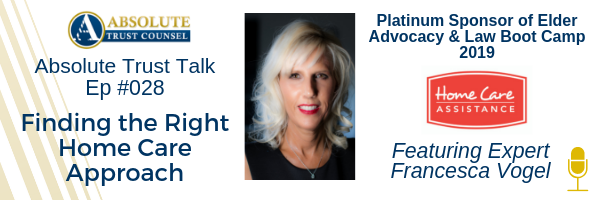This is another installment in our series on Medi-Cal planning. In this blog post we will discuss one final concept that we must keep in mind for our clients when doing their Medi-Cal eligibility planning: estate recovery. The State of California is entitled to recover from the estate of a deceased Medi-Cal recipient the funds paid to elderly clients through the Medi-Cal program for long-term care. When a California resident dies, the executor of the estate is required to send a notification to the Department of Health Care Services (DHCS). If the decedent received long-term care Medi-Cal benefits, the DHCS will respond with a claim for the amount owed.

These claims can be in the hundreds of thousands of dollars, depending on how long the decedent was receiving Medi-Cal benefits. This can be quite shocking to the family. However, it’s important to keep a few points in mind. First, there is no estate recovery when the decedent is survived by a spouse, minor child, blind child or disabled child. Second, and this is where planning is so important, estate recovery is only made against the decedent’s probate estate.
What does this mean? It means that an important part of the planning is to make sure the Medi-Cal recipient’s assets are either in a revocable trust or will pass on death automatically by some mechanism other than probate.
Specifically, we must do planning for each of the following categories of assets:
- Exempt assets – These are the assets a Medi-Cal recipient is allowed to own: personal residence, car, furniture and other personal possessions. These assets should be owned by a revocable trust. Trust assets do not require a probate.
- Retirement accounts – These assets pass on the death of the owner by means of a beneficiary designation. It is very important that all retirement accounts have both primary and contingent beneficiary designations that are up to date. If no beneficiary is designated, the account will go to the decedent’s probate estate and will thus be subject to estate recovery.
- Other death benefits – Many clients have other assets that will pay a benefit on their deaths, such as life insurance and annuities. Just like retirement assets discussed above, it is very important to make sure that we have designated a primary and secondary beneficiary on all of these benefits.
[Ad] Calling all neighbors in the Walnut Creek area and beyond! At Absolute Trust Counsel, we understand how unique the needs of your family can be. When it comes to planning for your family’s legacy, there is no one-size-fits-all approach. Schedule a free discovery call,and let’s talk about how we can help build the right plan for your family’s circumstances. Or, if you have a question about the content in this blog, please feel free to get in touch with us by calling 925.943.2740 or sending an email to Info@AbsoluteTrustCounsel.com.
If you’re someone who needs to include Medi-Cal planning in your estate plan, we can help. For more information on what Medi-Cal planning should look like, visit https://absolutetrustcounsel.com/practice-areas/medi-cal-planning/ for even more resources to help get you started.





